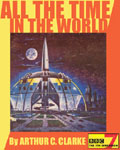
 The SFFaudio Podcast #008 – here there be podcasts – we’ve adorned ourselves in too much gold, now we can’t move! So join us on our 8th show, where we’re always etymologically correct.
The SFFaudio Podcast #008 – here there be podcasts – we’ve adorned ourselves in too much gold, now we can’t move! So join us on our 8th show, where we’re always etymologically correct.
Scott: Oh ya right. I just forgot something man. Uh, before we dock, I think we ought to discuss the bonus situation.
Jesse: Right.
Scott: We think… we think we deserve full shares.
Jesse: Right.
Scott: Pass the cornbread.
Topics discussed include:
42Blips.com, METAtropolis, Jay Lake, John Scalzi, Elizabeth Bear, Tobias Buckell, Karl Schroeder, Mr. Spaceship, Philip K. Dick, Stefan Rudnicki, Wonder Audio, Anne McCaffrey, The Ship Who Sang, Michael Hogan, Battlestar Galactica, 18th Century Spain, Cascadia (Oregon, Washington, British Columbia, and sometimes Idaho), Detroit, “Turking”, The Turk (the chess playing automaton), alternative economy, Kandyse McClure, infodump, shared world, Brandon Sanderson, hard fantasy, Elantris, Larry Niven, The Magic Goes Away, manna, unicorns, dragons, Dungeons & Dragons, Mistborn, Robert Jordan, The Wheel Of Time, Writing Excuses Podcast, Howard Tayler, SchlockMercenary.com, Dan Wells, The Dark Knight, Aural Noir, The New Adventures Of Mike Hammer, Stacy Keach, Mike Hammer, Full Cast Audio, Red Planet, Robert A. Heinlein, Bruce Coville, Mars, Heinlein’s Future History sequence, the Red Planet TV miniseries, Princess Academy, Shannon Hale, Blackstone Audio, The Collected Stories Of Philip K. Dick Volume 1, and Volume 2, Inferno by Larry Niven and Jerry Pournelle, David Farland, Runelords, Collected Public Domain Works Of H.P. Lovecraft, LibriVox.org, October, Ray Bradbury, “Autumn ennui”, AUTHOR PAGES, LEIGH BRACKETT, FREDERIC BROWN, JAMES PATRICK KELLY, BBC7, RadioArchive.cc, Beam Me Up Podcast, MACK REYNOLDS, Robert Sheckley, Religulous, Constantine’s Sword, The Ultimate Encyclopedia Of Science Fiction: The Definitive illustrated Guide edited by David Pringle, space opera, planetary romance, Julie D., Forgotten Classics podcast, The Wonder Stick, time travel, alien intrusions, metal powers, Slan, The Demolished Man, comedic SF, aliens, artificial intelligence, “cosmic collisions”, Deep Impact, cyborgs, dinosaurs, the dying Earth, Gene Wolfe, elixir of life, immortality, Roger Zelazny, Robert Silverberg, genetic engineering, nuclear war, overpopulation, parallel worlds, robots, androids, Joanna Russ, Ben Bova, space travel, suspended animation, teleportation, transcendence = the Singularity ?, Childhood’s End, Arthur C. Clarke, religion, 2001: A Space Odyssey, Monica Hughes, Crisis On Conshelf Ten, Hard SF, cyberpunk, psychology, New Wave, lost races, military SF, science fantasy, shared worlds, steampunk.
Posted by Jesse Willis


 Planet B
Planet B




